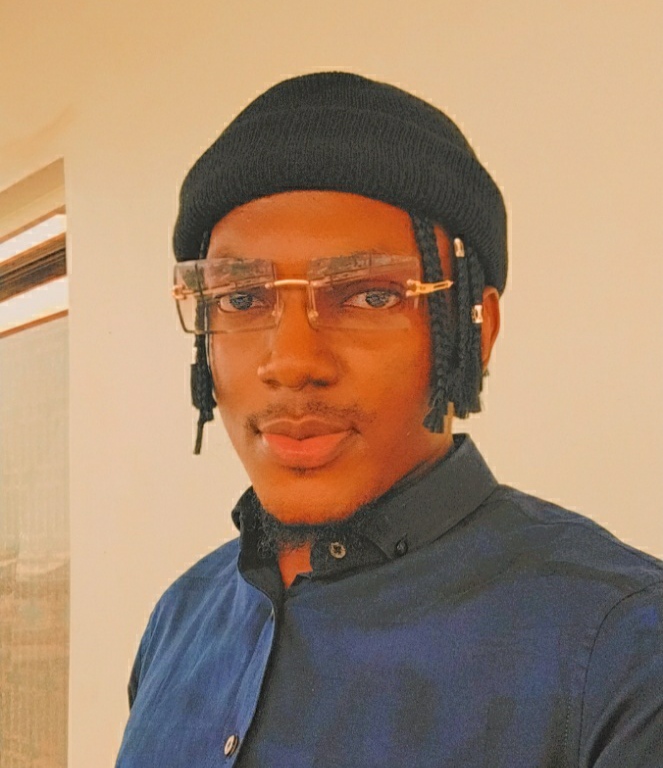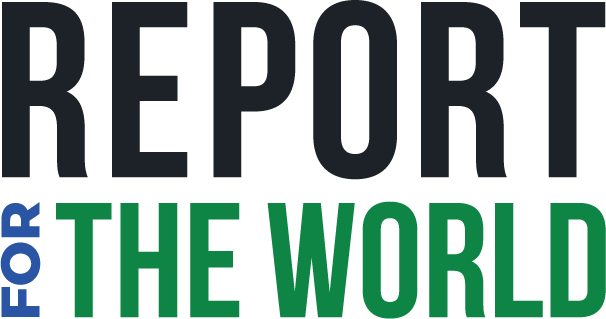Our spring fundraising campaign is live, and we’re inviting you to take part. Every day, Report for the World corps members are producing public-service journalism that fosters understanding, connection, and growth. But we can’t do it without you.
An anonymous donor is matching all gifts to Report for the World through midnight Friday. Will you do your part to support independent, local journalism across the globe?
Yes! I support Report for the World!
Press freedom in Nigeria is at a delicate point. Attacks on the news organizations and journalists are on the rise. According to CJID (Centre for Journalism innovation and development), a Nigerian platform dedicated to tracking and reporting attacks on Journalists, at least 38 attacks were recorded in 2022 alone, the second highest since 2019 when 74 attacks were recorded. Our corps member Daniel Ojukwu tells stories of injustice and police brutality amid these risky conditions. He was in the forefront of the 2020 #EndSARS protests which demanded the dissolution of the Special Anti-Robbery Squad (SARS), a notorious division of the Nigerian Police with a long history of abusing citizens.
Only a few months ago, he was covering the Nigerian presidential elections as disinformation swept the nation in an effort to influence people’s votes. Daniel offers his perspective on the challenges he encountered at the time and the steps he took to keep the brutal police at bay.
Report for the World: How was your experience covering the police during a tense election where journalists were attacked and harassed. Did you approach your reporting in a different way?
Daniel Ojukwu: During the 2023 general election, policemen were instructed to remain unarmed at polling units across the country, leaving them unable to defend citizens under attack. This contributed —to some degree—to the perpetration of violence . 28 journalists suffered harassment, arrests, intimidation and incarceration.
 On the other hand, where the police operated with arms, some of them directly attacked journalists. In Bauchi State, a newspaper publisher was arrested while reporting on how pensioners were protesting against the sitting governor. When I spoke with the police to understand the reasons behind this action, without ambiguity, they said only the governor could intervene on the matter. In Nigeria, policing and security are matters that only the federal government has control over.
On the other hand, where the police operated with arms, some of them directly attacked journalists. In Bauchi State, a newspaper publisher was arrested while reporting on how pensioners were protesting against the sitting governor. When I spoke with the police to understand the reasons behind this action, without ambiguity, they said only the governor could intervene on the matter. In Nigeria, policing and security are matters that only the federal government has control over.
Journalists like me could only rely on the security architecture they prepared before and during the exercise. What I did was keep my eyes open and avoid isolated spaces, engage with residents of communities I visited, work closely with other journalists, keep the communication lines open with my colleagues and organization so they know where I was at all times, and stay vigilant and careful so I don’t spook anyone or attract undue attention.
According to available 2022 data, Nigeria ranks outside of the top 120 countries for press freedom. It is worrisome enough, and this information would naturally shape the approaches journalists take to gathering and reporting stories. For me, I have come to learn that good stories take their toll on you, but no story is worth the reporter’s life.
RFW: Nigeria has grappled with misinformation for years. Did you see anything different in the type and impact of misinformation in the latest election? Has any of the measures taken by news organizations had an impact?
Ojukwu: Misinformation is a global problem. Almost every country grapples with the hazards of misinformation. In Nigeria, several supporters of political parties employed the use of influencers to publish false or misleading information on candidates of opponent parties. Some of these social media users put out authentic visual materials but in misleading contexts, and this played a sizable role in the pre-election, election and post-election seasons.
False claims of violent attacks, forfeiture of candidature, withdrawal from the elections, and more, were on social media, and these contributed negatively to the exercise.
Several newspapers and fact-checking organizations, including FIJ, worked tirelessly to check some of the claims circulated on social media, and filter fact from fiction.
This timely approach helped reduce the spread of misinformation, and counter their effect before they spread.

